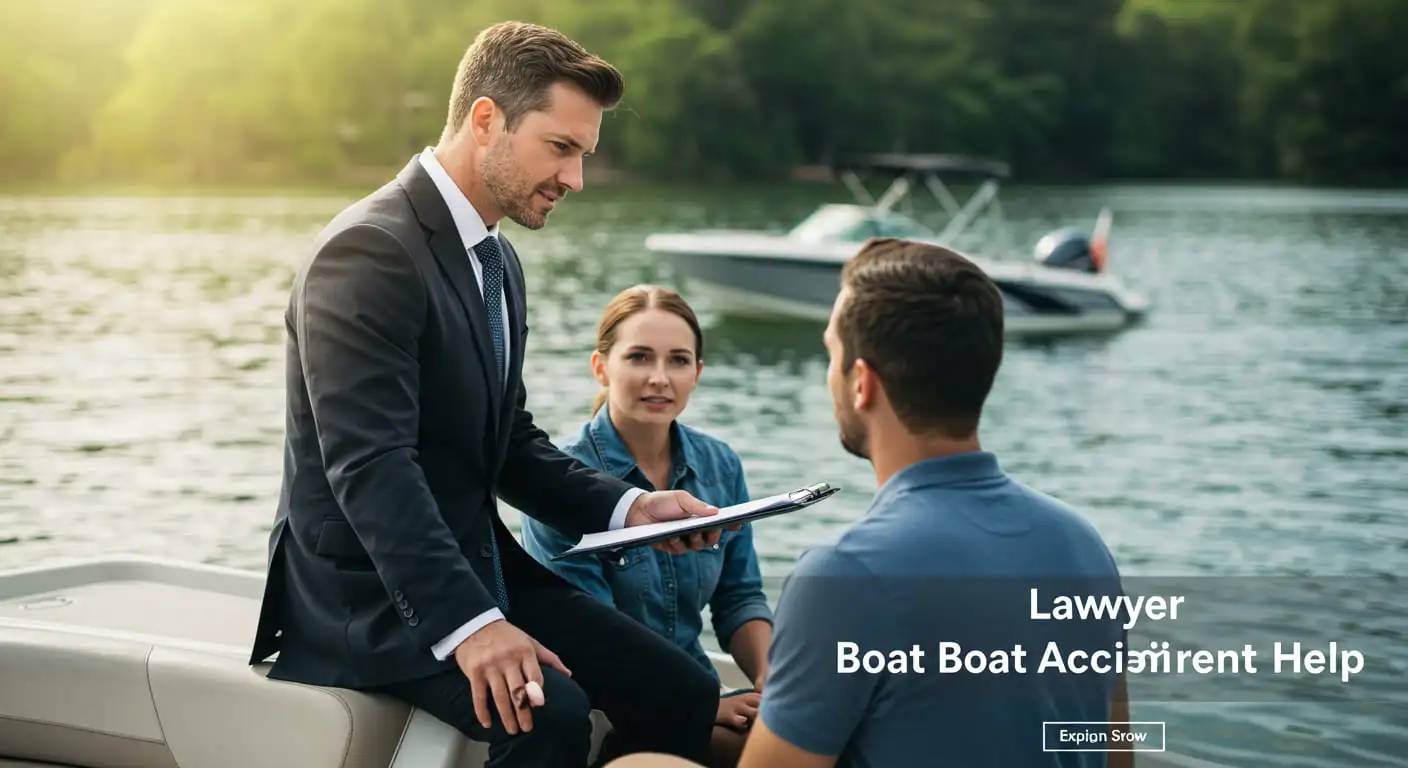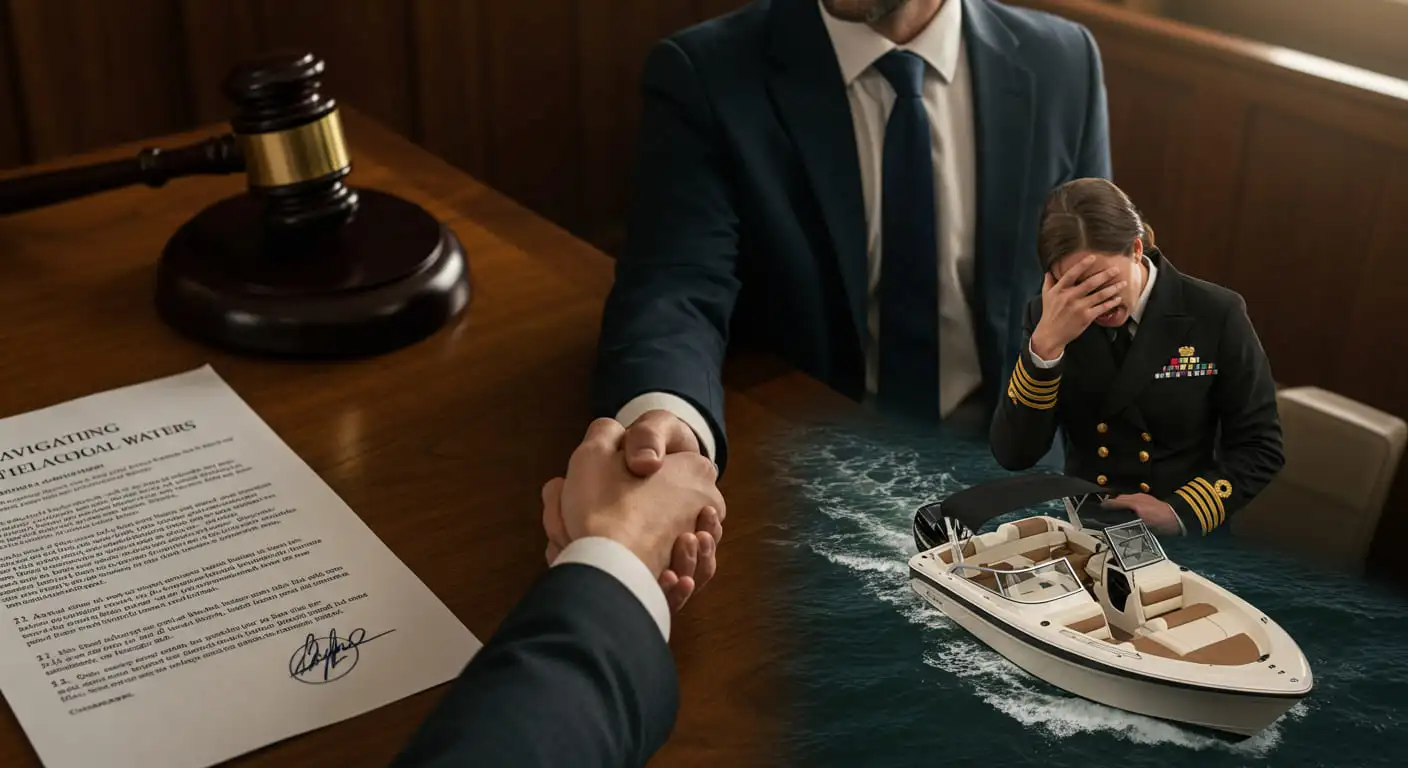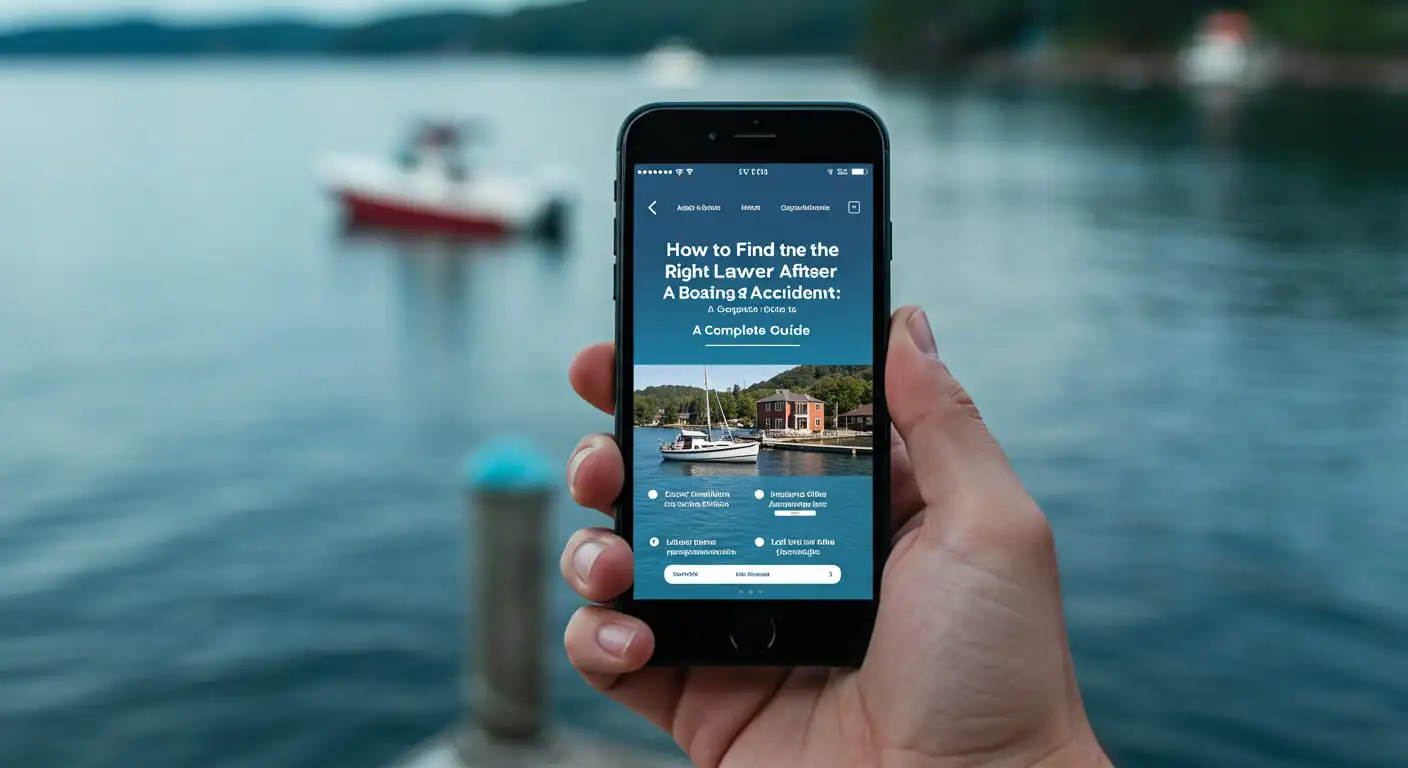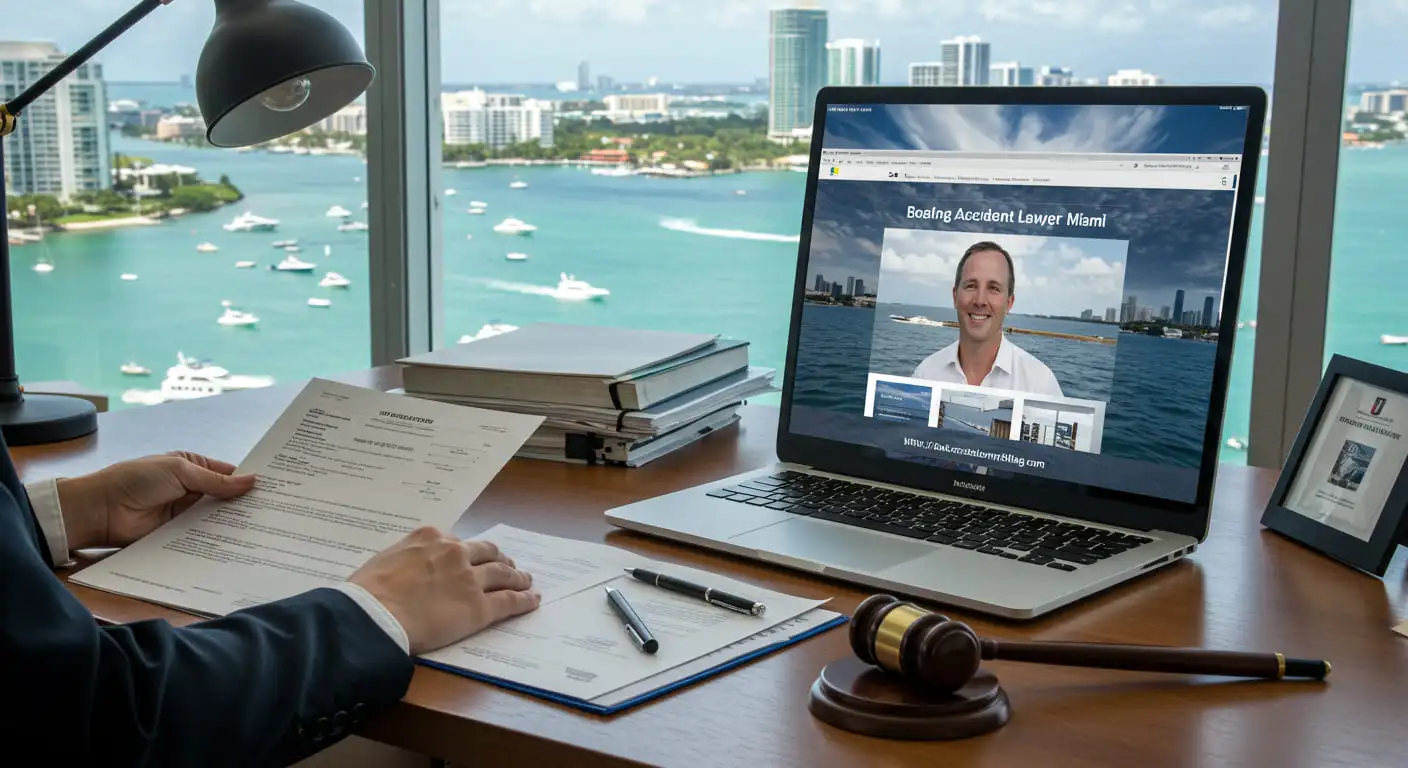Learn how to file a boating accident claim in 2025. Discover your legal rights, insurance steps, required evidence, and how to choose the right attorney.
Introduction
Boating is meant to be a relaxing escape. But when things go wrong on the water—whether it’s a crash, collision, or injury—victims are often left confused about what to do next. Unlike car accidents, boating incidents involve a complex mix of maritime laws, insurance policies, and often unclear liability.
If you’ve been involved in a boating accident and believe you’re entitled to compensation, knowing how to file a claim is crucial. This guide walks you through the process—from what counts as a valid claim to hiring an attorney who understands maritime law.
What Qualifies as a Boating Accident Claim?
A boating accident claim arises when someone suffers injury, property damage, or loss due to another party’s negligence or a maritime violation. These incidents may include:
-
Collision between two boats
-
A boat striking a dock or object
-
Capsizing or swamping
-
Falling overboard accidents
-
Jet ski or personal watercraft crashes
-
Fires, explosions, or equipment failure
If the incident caused physical injury, emotional trauma, or financial loss—and someone else may be responsible—you may be eligible to file a claim for compensation.
Immediate Steps After the Accident
Before initiating a legal claim, taking proper steps at the accident scene can make or break your case. Here’s what to do immediately:
-
Check for injuries and call for help.
Prioritize life and safety. Call 911 or alert the Coast Guard if there are serious injuries or damage. -
Document the scene.
Use your phone to take photos or videos of:-
Vessel damage
-
Injuries
-
Weather/water conditions
-
License numbers and registration of involved boats
-
-
Exchange contact and insurance info.
Get names, phone numbers, and boat insurance details from other parties involved. -
File a formal boating accident report.
In the U.S., the Coast Guard requires a written report if the accident caused:-
Death or disappearance
-
Injury requiring medical treatment
-
Property damage exceeding $2,000
-
A destroyed vessel
-
Each state may have specific reporting rules, so consult your local boating authority.
Who’s Liable in a Boat Accident?
Determining fault is often the most debated part of a boating accident claim. Common liable parties include:
-
Another boat operator
-
The boat’s owner (if different from the operator)
-
A commercial boat company
-
A manufacturer (if faulty equipment played a role)
-
Rental companies (if negligence in maintenance occurred)
If you contributed to the accident, comparative negligence laws may reduce your compensation based on your share of fault.
Evidence You Need to File a Claim
Strong evidence increases your chances of a successful claim. Collect:
-
Police or Coast Guard reports
-
Medical records and bills
-
Witness statements
-
Photos/videos from the scene
-
Repair invoices for property damage
-
Personal injury diary (pain levels, emotional trauma)
Keep all documents organized and backed up. Even a single missing medical bill can delay or reduce your compensation.
When and How to File a Police or Coast Guard Report
Federal Requirements:
The U.S. Coast Guard requires an official report for any boating incident involving:
-
Death
-
Disappearance
-
Serious injury
-
Damage over $2,000
-
Total vessel loss
Reports must typically be submitted within 48 hours for injuries or fatalities and within 10 days for property damage.
Download the CG-3865 form (Boating Accident Report) from the U.S. Coast Guard website.
State Reporting:
Each state has its own boating laws. For example:
-
Florida: Requires reporting within 48 hours if medical treatment is needed.
-
California: Same-day notification is required in fatal cases.
-
New York: Reports must be filed with the Parks and Recreation Department.
Filing a Boat Insurance Claim
If you’re filing through your boat insurance, the process usually includes:
-
Notify your insurer as soon as possible. Provide details such as time, location, and parties involved.
-
Submit required forms including photos, diagrams, and any police or Coast Guard reports.
-
Work with an insurance adjuster to assess damage and negotiate coverage.
-
Track medical and repair expenses to submit later as supporting documentation.
⚠️ Be cautious when speaking with insurance companies—avoid admitting fault or speculating about what happened.
Filing a Personal Injury Claim
If you or a loved one suffered injuries, a personal injury claim may offer greater compensation than insurance alone.
What Can You Claim?
-
Medical bills (past and future)
-
Lost wages or income
-
Pain and suffering
-
Emotional distress
-
Loss of enjoyment of life
-
Permanent disability or disfigurement
Most maritime injury claims are filed in civil court, either at the state or federal level—depending on jurisdiction.
Statute of Limitations by State
Every state has a deadline—called the statute of limitations—by which a boating injury claim must be filed.
Here are examples:
| State | Personal Injury Deadline |
|---|---|
| Florida | 2 years (maritime cases) |
| California | 2 years |
| New York | 3 years |
| Texas | 2 years |
| Georgia | 2 years |
If your claim involves federal maritime law (like a commercial boating incident or offshore crash), different deadlines may apply.
Working With a Boat Accident Lawyer
Hiring an attorney with experience in boating or maritime law can make a huge difference in your case. Here’s what to look for:
-
Past success in boating accident cases
-
Familiarity with federal and state boating laws
-
Free initial consultations
-
Contingency-based fees (you pay nothing unless they win)
Many victims underestimate the legal complexity involved. An experienced lawyer helps negotiate with insurers and can take the case to court if necessary.
Common Mistakes to Avoid
-
Waiting too long to file a report or claim
-
Admitting fault on the scene or to insurers
-
Failing to seek medical treatment immediately
-
Not hiring a specialized attorney
-
Relying solely on insurance for compensation
Avoiding these pitfalls can significantly improve your outcome.
FAQs About Boating Accident Claims
Q: Do I need a lawyer for minor injuries?
A: Even if injuries seem small, you may later discover hidden complications. Consulting a lawyer helps protect your rights.
Q: Can I file a claim if I wasn’t wearing a life jacket?
A: Yes, but it could reduce your compensation depending on the laws of your state and how that contributed to the injury.
Q: What if the other party left the scene?
A: This could qualify as a hit-and-run. Notify authorities immediately and provide any evidence or witness info you have.
Conclusion
Filing a boating accident claim may seem overwhelming—but with the right knowledge and preparation, it doesn’t have to be. Whether you’re seeking coverage through insurance or full compensation for injuries, acting quickly and strategically is key.
Start by reporting the accident, gathering evidence, and contacting a qualified boating accident lawyer. Don’t wait until it’s too late—your health, financial future, and legal rights depend on it.
Related Articles











